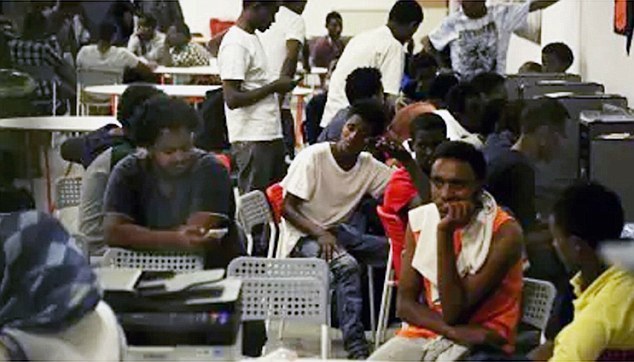BRICS nations moving rapidly to circumvent the US dollar as the World Reserve Currency
12/02/2022 / By Lance D Johnson

Emerging economies around the world are moving quickly to subvert the US dollar and curtail its dominance as the world reserve currency. The economies of Brazil, Russia, India, China, and South Africa (BRICS) are finding new, expedient ways to cooperate and trade, without any involvement from the Western-dominated financial system, and the risks that come from fluctuating exchange rates, and the certainty of debt to the US world reserve currency.
The Eurasia Economic Union (EAEU) has developed a common payment system that will allow the BRICS nations to merge economically into one. BRICS nations have already begun to circumvent the US dollar by transacting their bilateral trade in local currencies, and this new system helps expedite the process.
The EAEU is appealing to the BRICS Nations through its regulatory body, the Eurasian Economic Commission (EEC) to implement a single payment card across these nations. This single payment card will merge the existing Russian MIR, Chia’s UnionPay, India’s RuPay, and Brazil’s Elo, among other payment systems.
EAEU building a new economic alliance to circumvent the US dollar
The EAEU seeks to freely move goods, services, and capital between member countries, without interference from the western-designed monetary system. It was established in 2015 as a customs union of Russia, Kazakhstan, and Belarus. It expanded to include Vietnam, Armenia, and Kyrgyzstan. Iran is currently working on a deal to join the EAEU, and with this merger, there will be new opportunities to merge with member nations of the Shanghai Cooperation Organization (SCO).

The advisor to the chairman of the EEC, Vladimir Kovalyov, spoke about the emergence of a joint financial market and the EAEU’s goals to develop a common “exchange space.” “We’ve made substantial progress and now the work is focused on such sectors as banking, insurance, and the stock market,” Kovalyov told the Russian newspaper Ivestia.
Kovalyov spoke recently at the BRICS International Business Forum in Moscow: “It is advisable to combine the potentials of the BRICS and EAEU macro-financial development institutions, in particular the BRICS New Development Bank, the Asian Infrastructure Investment Bank (AIIB), as well as national development institutions. This will make it possible to achieve a synergistic effect and ensure synchronous investments in sustainable infrastructure, innovative production, and renewable energy sources.”
Russian President Vladimir Putin is priming Russians for a new international payment system that is based on blockchain and digital currencies. This project was recently presented at the First Eurasian Economic Forum in Bishkek. The proposal designates agreements for cross border placement and circulation of securities in member states, with amendments to technical regulations. Putin is scheduled to meet with the Supreme Eurasian Economic Council in Moscow on December 14, to further the common payment system.
The era of US dollar domination is splintering
Since World War II, the US dollar has been the world’s dominant reserve currency. Central banks hold approximately 60% of their foreign exchange reserve in dollars. About half of all international loans, global debt securities, and international trade is converted through the US dollar. Up to 90% of all transactions at foreign exchange markets are traded in dollars.
The global demand for US dollars over the past seven decades had allowed the U.S. to cheaply borrow at lower interest rates. This allows the US government and American consumers to borrow directly from foreign creditors, instead of borrowing in foreign currencies. This protects the debt from fluctuations in exchange rates, while also saving American consumers and firms from added transaction costs. All the other economies in the world are at the mercy of fluctuating exchange rates, and the increased debt that they are forced to incur in their national currency.
All of this gives the United States economy serious advantages over all other economies in the world and affords Americans consumers certain privileges that other countries do not enjoy. If these advantages were to fall away, then Americans will start to pay more for the things they once took for granted. Today’s record inflation could be just a taste of what is to come. Since the American economy is built on debt fraud and privilege, Americans could find themselves even more vulnerable when other nations break the stranglehold of the central banking system dominated by the West.
As the United States government continues to plunder the world with economic sanctions, monetary fraud, and war, it’s only a matter of time before emerging economies learn to cooperate and trade, circumventing US control. The EAEU’s integration of a common payment system in the BRICS nations could be the straw that breaks the camel’s back, and will pave the way for authoritarian central bank digital currencies to emerge.
Sources include:
Submit a correction >>
Tagged Under:
BRICS, Bubble, Central Bank Digital Currency, Collapse, common payment system, currency crash, currency reset, dollar demise, economic mergers, Eurasia Economic Union, global trade, Inflation, money supply, risk, sanctions, Us Dollar, world reserve currency
This article may contain statements that reflect the opinion of the author
RECENT NEWS & ARTICLES
COPYRIGHT © 2017 COLLAPSE.NEWS
All content posted on this site is protected under Free Speech. Collapse.news is not responsible for content written by contributing authors. The information on this site is provided for educational and entertainment purposes only. It is not intended as a substitute for professional advice of any kind. Collapse.news assumes no responsibility for the use or misuse of this material. All trademarks, registered trademarks and service marks mentioned on this site are the property of their respective owners.





















